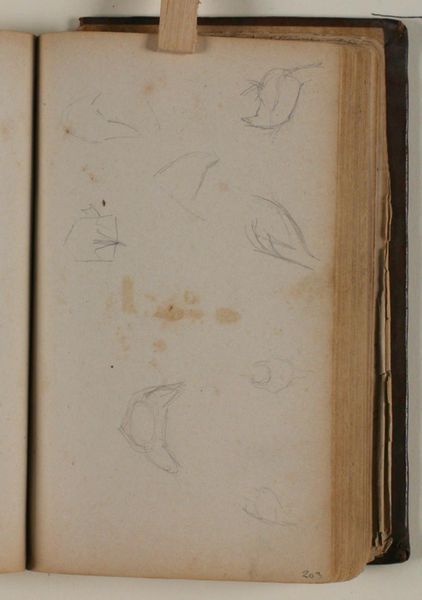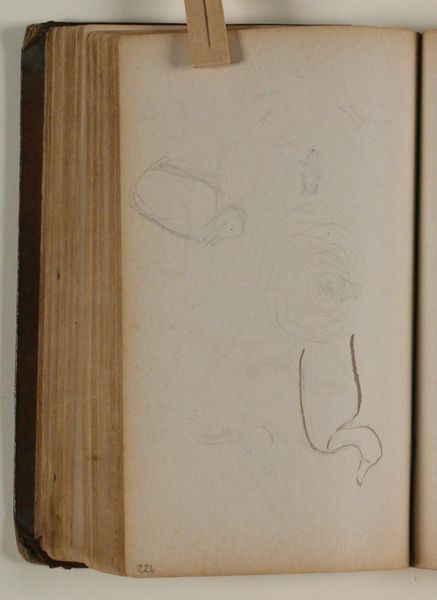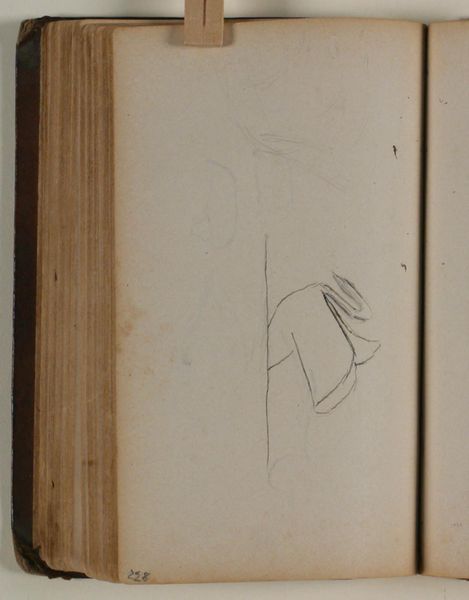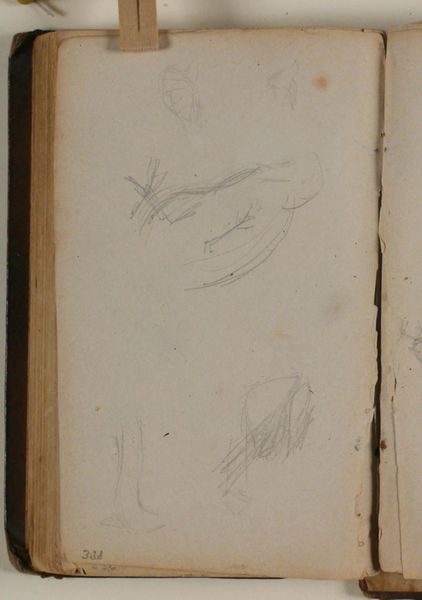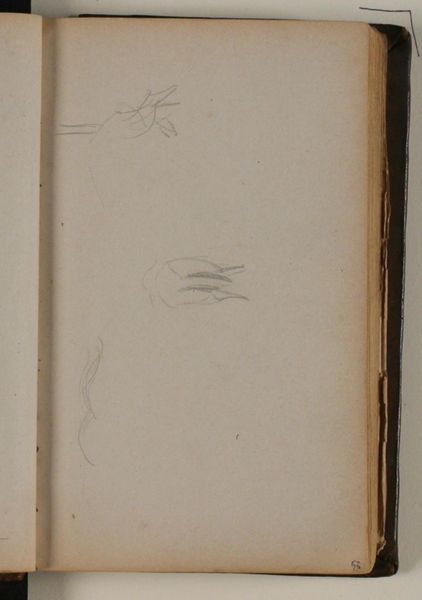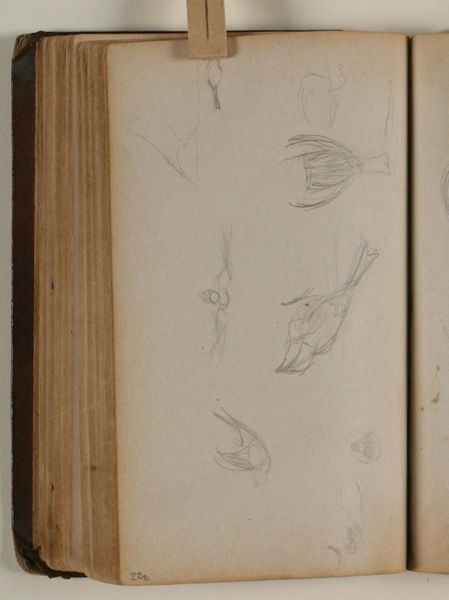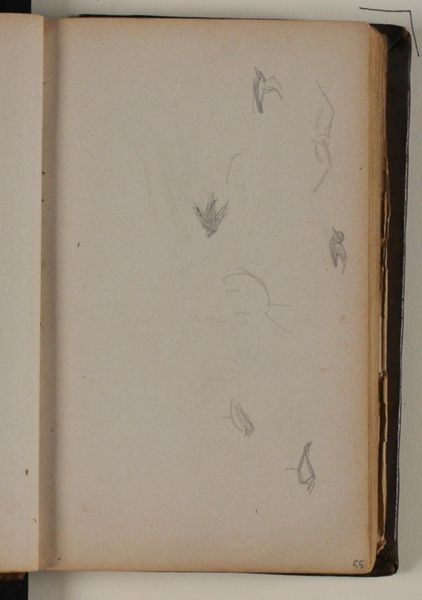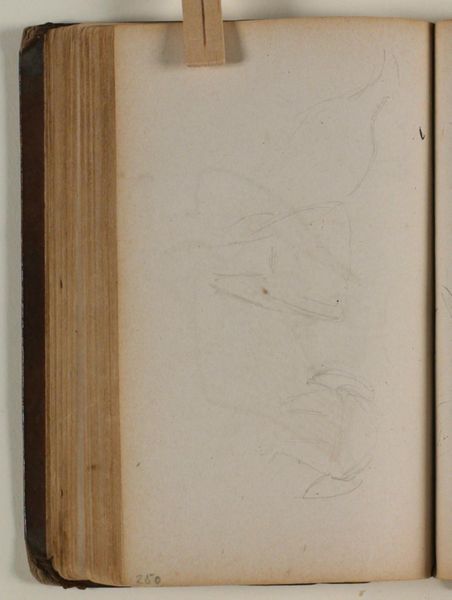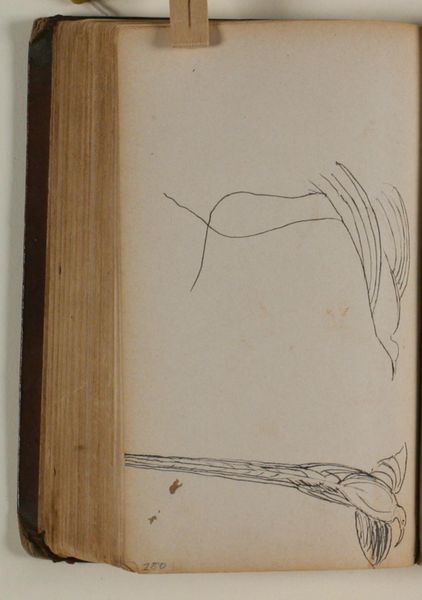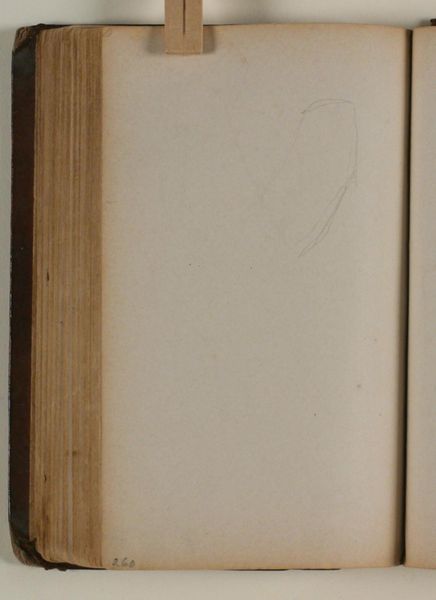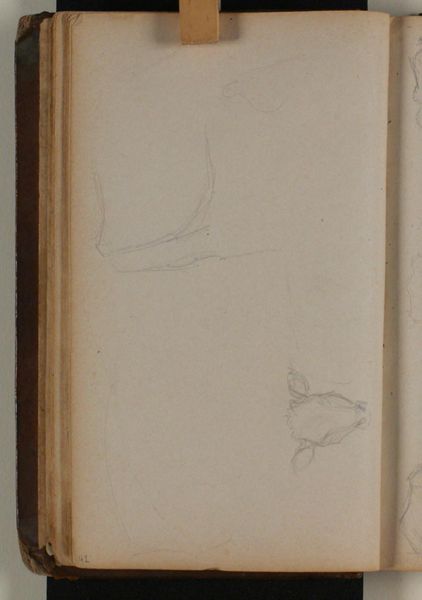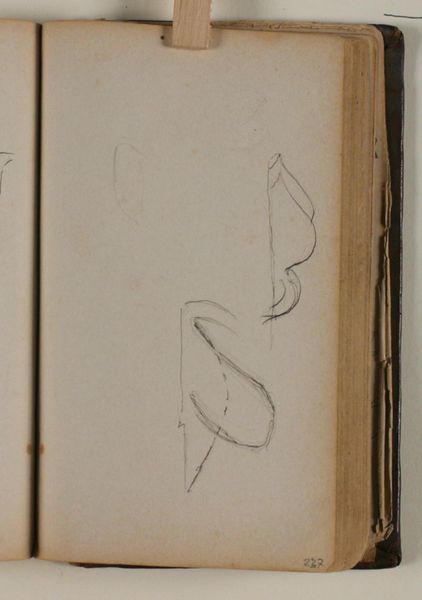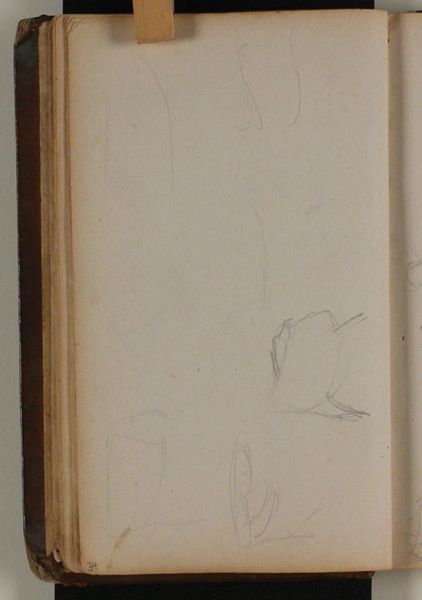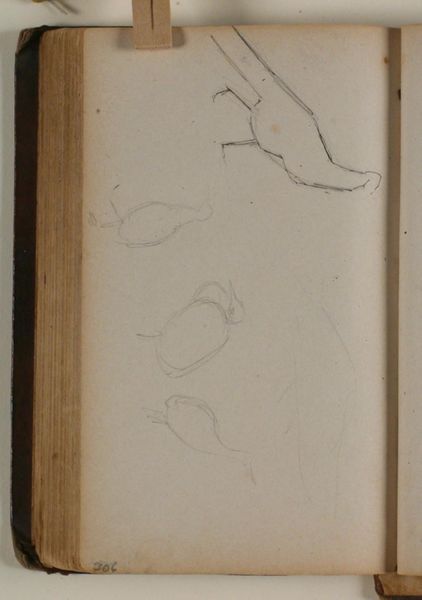
drawing, paper, pencil
#
drawing
#
organic
#
figuration
#
paper
#
coloured pencil
#
pencil
Editor: Here we have "Studies of Birds," a drawing on paper by Niels Larsen Stevns, created sometime between 1864 and 1941. The sketches feel so raw and immediate. What jumps out at you? Curator: Immediately, I’m struck by the economy of line. Note how Stevns captures the essence of avian form with such minimal, decisive strokes. The composition itself, scattered across the page, directs the eye in a non-hierarchical manner, disrupting any clear focal point. It encourages a fragmented reading. Editor: That's a great point about the lack of a focal point! So, rather than seeing them as studies for something else, perhaps, the drawing, the overall surface, is the final expression? Curator: Precisely. We might consider the use of negative space as an active compositional element. The emptiness around the sketches is just as crucial to the work's overall effect. How does that spatial relationship alter the reading of each image on the page, when considered as an exercise? Is the intention here to understand each bird's stance and movement? Editor: It changes it a lot for me. Each little bird, while not particularly detailed, stands on its own as this small little representation, not necessarily striving for photorealistic representation, more about movement, stance... Also the diagonal lines across the birds near the bottom seem more pronounced and dynamic because of their separation. Curator: Indeed, Stevns captures the *idea* of birds, rather than exacting portraits. Consider, too, the material presence of the paper itself – its texture, its aged quality. It brings to the work a temporal dimension; each mark has been set adrift in a sea of aged time. Does the support become part of the study in the end? Editor: That's such a good way to put it! Now I’m looking at this piece with fresh eyes. Curator: And now it begs, do you see any "finish"? We have been contemplating how line, composition, material come together and work separately, can any part really stand alone?
Comments
No comments
Be the first to comment and join the conversation on the ultimate creative platform.
